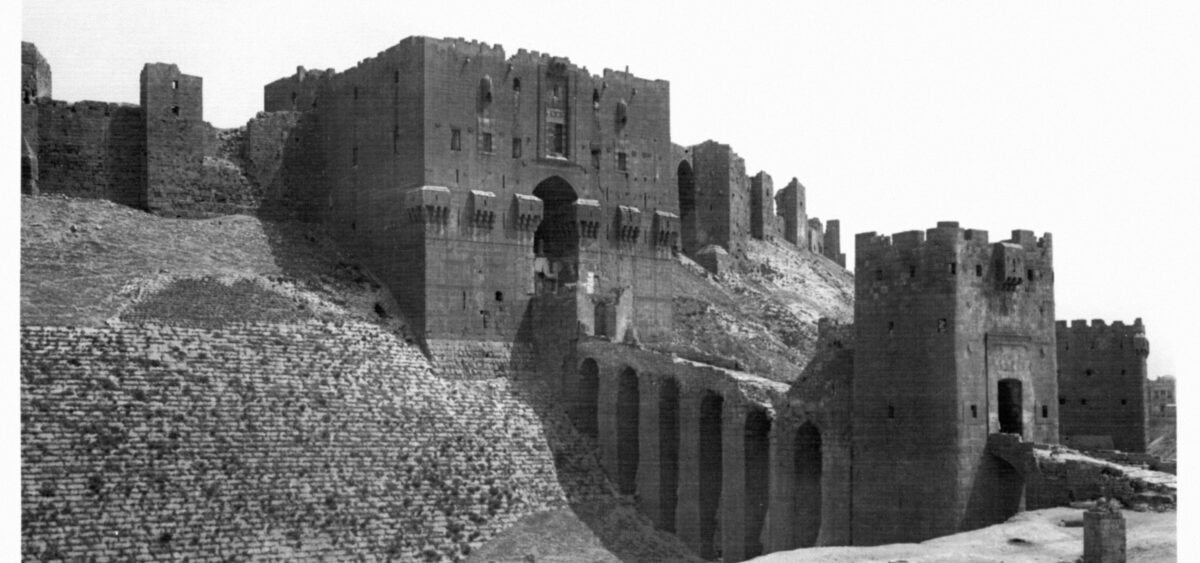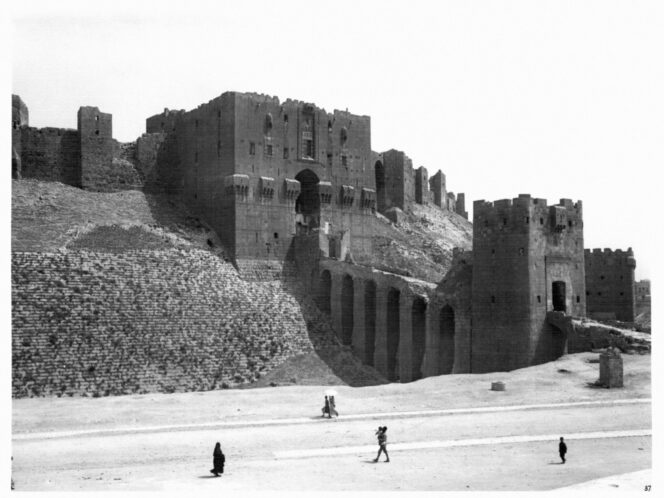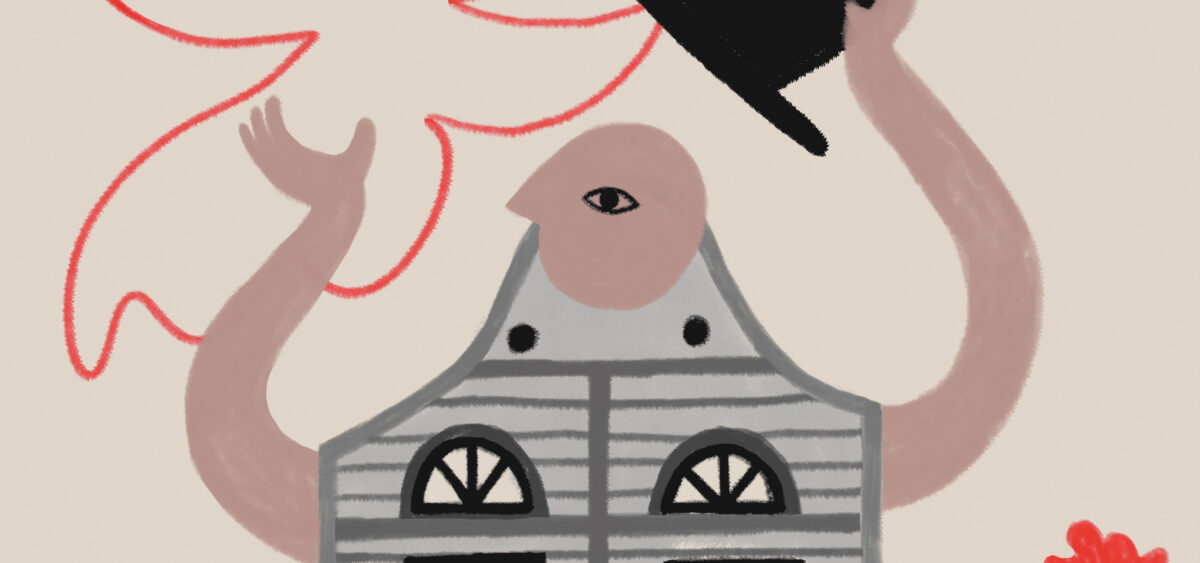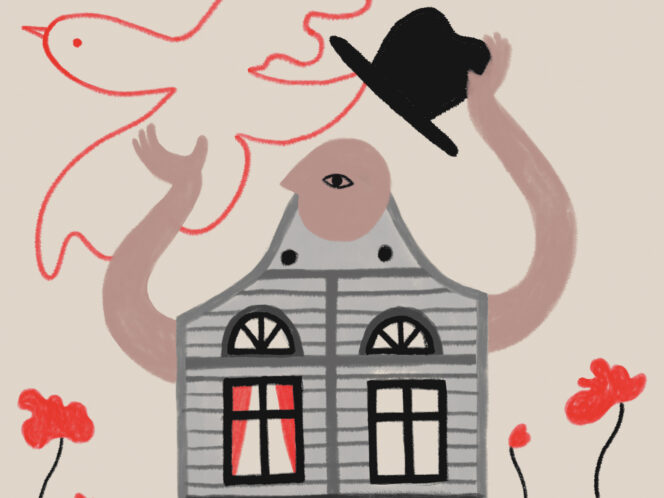
Aleppo used to be an intricate tapestry of chatter, crowds, shaded courtyards, temples and baths, history and the present. In a word: a community. A few years ago, its markets turned into trenches and its gardens into graveyards. Nonetheless, in one of the longest-inhabited places in the world, hope never dies.
Midday, boiling hot. My friends and I get off the bus on swollen legs. We’ve just made a week-long land journey from Poland via Ukraine, Romania, Bulgaria, and Turkey all the way to the Syrian border, where we will now spend long hours waiting for an entry stamp, under the piercing gaze of portraits of Hafez al-Assad and his son Bashar. It’s summer 2001; Assad senior died the previous summer and his son assumed power. We understand little about this, maybe only that we’re about to enter a country in which half of the world’s websites are inaccessible and every waiter can be an agent of the regime.
Aleppo welcomes us with hubbub and dust. But its inhabitants are paragons of friendliness. Vendors of sweet coffee, as well as self-appointed guides and drivers, are all hospitable and curious. They pile on the questions, offers, invitations to talk in French—they’re so glad to have someone with whom they can converse in the language they learned at high school, but use rarely. No, it’s not about money. In Syria—at that moment, I was certain of this—we’re welcomed by the joy of encountering newcomers, although ultimately we don’t represent anything promising. Just three female students and one guy, a little older, ginger-haired.
Around the Clock
We sleep the cheapest way—on the roof of a little hotel somewhere in the heart of the old city. We play backgammon and smoke the hookah with some Syrians until late at night; below the city rustles on, working and busy at all hours. We doze off, woken up again and again by the noise of store shutters (some businesses are closing, some are opening), laughter from








